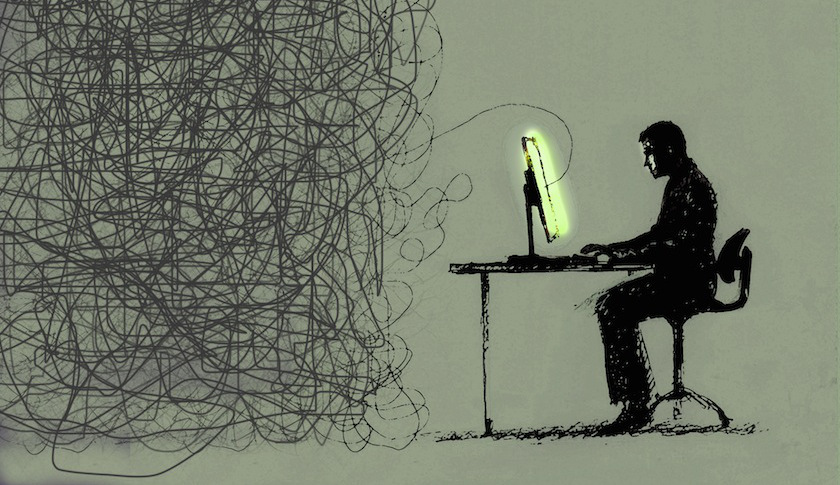Coca-Cola, a rather large company, just killed voice mail at their global HQ. People have been predicting the death of voice mail for years — in that article, someone says that “people over 40 are schizo about it, but people under 35 never use it.” Seems about right. When I first started ever working, around 2003 or so, you would consistently hear people checking their voice mail as they got to work in the morning. Now I almost never hear it. It will only die in more places — texting is the new black for teenagers, no?
As voice mail started to decline, the notable thing that rose was e-mail. E-mail is terrible, and an absolute time suck, and because no one contextualizes them, people are always running around thinking everything is a priority. In short, it sucks. But it’s been the primary way for people to communicate in an office — and for marketers and advertisers to reach potential customers — for years now.
But … what if e-mail someday goes the way of voice mail?
This could happen. Just look at the broader landscape. Our attention spans are decreasing. The hottest company in America, by some measure, is a company based on texts that disappear after 10 seconds. We know all this.
The real question: when does the same thing start happening with email? http://t.co/NSPWJxzPka pic.twitter.com/Te3Z7MFMWE
— M.G. Siegler (@mgsiegler) December 26, 2014
If the logic is “Well, I don’t have time to plow through 15 voice mails,” won’t the logic someday become “I don’t have the time to plow through 100 e-mails?”
Isn’t that already the logic in many cases?
Fortune thinks 2015 could be the beginning of the end for e-mail; the logic is that things like HipChat or Yammer or Slack (which I wrote about once) could come in and replace it. I think that’s possible, but it requires a generational shift too — my current company is trying to use Yammer right now, and it’s been a slow build (although people are getting better). In the modern age, anything new can automatically be viewed as “another responsibility.” People don’t always love that.
The Atlantic thinks e-mail is the best thing on the Internet, and Slate believes it will never die. The Next Web just thinks it will “evolve.”
I can’t really predict the future — if I could, I’d probably have more money in my bank account — but it stands to reason that we’ve already reached a place where e-mail can be ignored easily. If you don’t like an offer or someone is below you on the hierarchy and you don’t need to answer them, you won’t. That’s life. If e-mail open and click-through rates start to drastically drop, marketers and advertisers will move away from it (which, paradoxically, could bring more people back to reading more of their e-mails).
If you really believe in the notion that “millennials want collaboration at work,” which has been stated many a time, then I do think platforms like Yammer and Slack and even GChat at work can rise up and replace some of the e-mail world. We’ve all been here:
If you came up in the world texting, e-mail will suck for you. Who wants 65 texts about the same topic? Not a teenager. They’ll tune e-mail out when they become mid-20somethings, and as a result, systems will need to change. It’s going to be somewhat of a generational shift, too, of course.
In sum, I don’t think e-mail will ever die, per se — but I do think in the next 15-25 years, you could see it pretty drastically re-contextualized.
